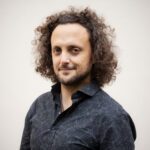Link to Pubmed [PMID] – 20197411
Hum. Mol. Genet. 2010 May;19(10):1998-2004
Mutations in the leucine-rich-repeat kinase 2 (LRRK2) gene have been identified in families with autosomal dominant Parkinson’s disease (PD) and in sporadic cases; the G2019S mutation is the single most frequent. Intriguingly, the frequency of this mutation in PD patients varies greatly among ethnic groups and geographic origins: it is present at <0.1% in East Asia, approximately 2% in European-descent patients and can reach frequencies of up to 15-40% in PD Ashkenazi Jews and North African Arabs. To ascertain the evolutionary dynamics of the G2019S mutation in different populations, we genotyped 74 markers spanning a 16 Mb genomic region around G2019S, in 191 individuals carrying the mutation from 126 families of different origins. Sixty-seven families were of North-African Arab origin, 18 were of North/Western European descent, 37 were of Jewish origin, mostly from Eastern Europe, one was from Japan, one from Turkey and two were of mixed origins. We found the G2019S mutation on three different haplotypes. Network analyses of the three carrier haplotypes showed that G2019S arose independently at least twice in humans. In addition, the population distribution of the intra-allelic diversity of the most widespread carrier haplotype, together with estimations of the age of G2019S determined by two different methods, suggests that one of the founding G2019S mutational events occurred in the Near East at least 4000 years ago.


